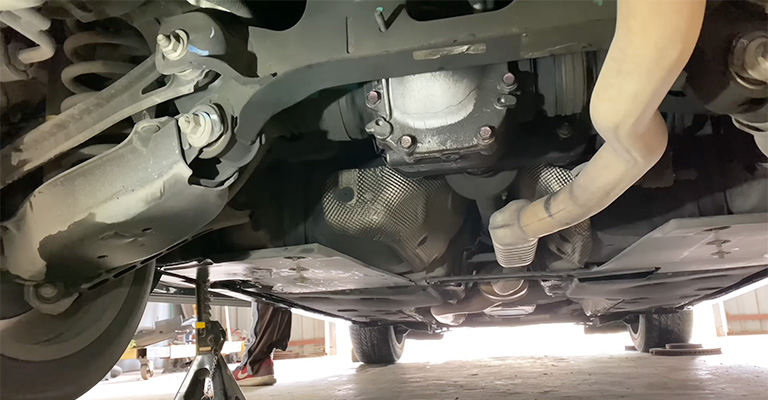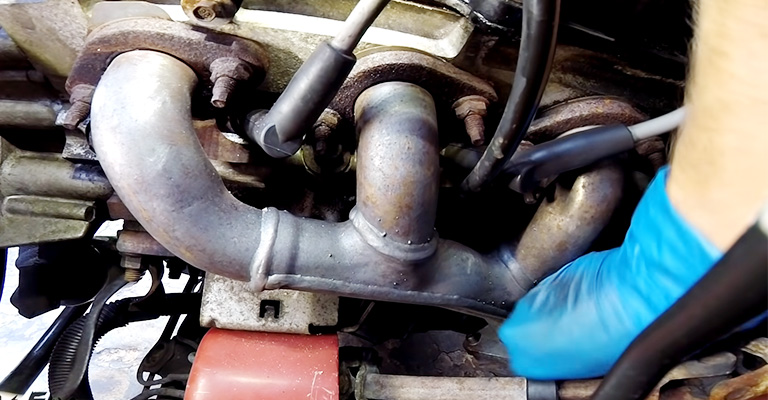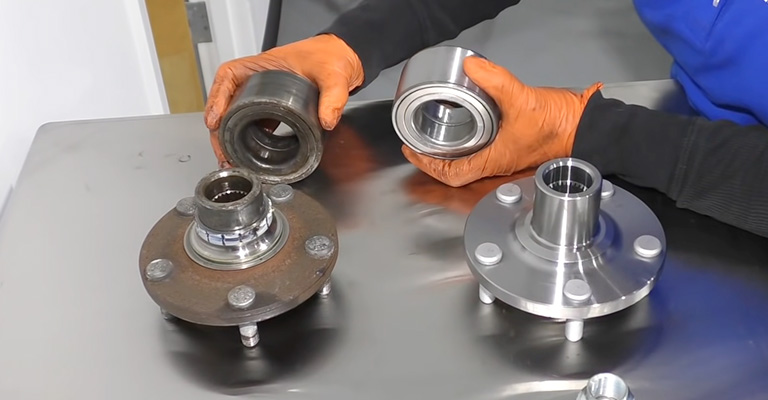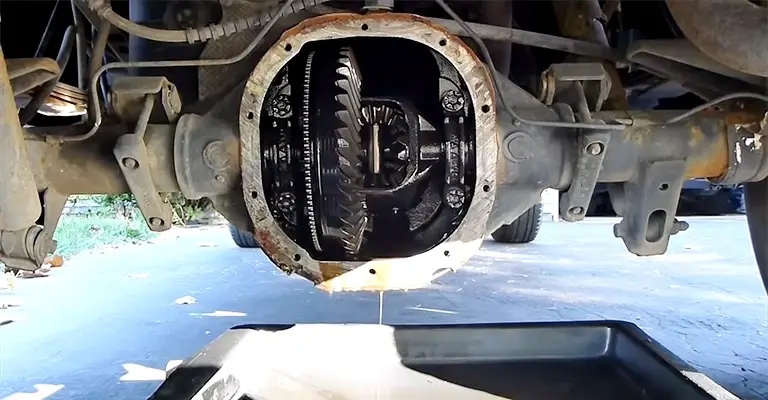It’s a strange problem; your car sounds like a lawnmower, and you don’t know why. This may be something as simple as peculiar engine noise or a muffler issue, but it could also signal something more serious. So, why car sounds like a lawnmower?
Possible causes include a clogged or loose exhaust pipe, a failing catalytic converter, or a defective muffler. Sometimes, due to a misfiring spark plug or a faulty fuel injector.
Whatever the case, it’s essential to listen to your car and figure out the best action. This blog will explore common causes for car sounds like lawnmowers and discuss the most effective solutions.

An Overview of Lawn Mower History
Edwin Beard Budding created the first lawn mower in 1796. He was attempting to build a device that would make harvesting wheat on his father’s farm more accessible and efficient than with a scythe.
After working on his invention for five years, he finally filed for a patent in 1818. These early versions were powered by human muscle, with one person pushing and another pulling.
Over time, improvements were made to make the design more practical and easier to use. It was in 1831 that John Ferrabee developed an engine-powered, one-person model, and the technology advanced rapidly.
The Reasons: Why Car Sounds Like Lawnmower?
In most cases, it’s likely related to one of several common issues with the vehicle. Here are some of the reasons why your car sounds like a lawnmower.
Exhaust Leak

One of the most common reasons why your car might sound like a lawnmower is an exhaust leak. A worn or cracked exhaust manifold, a damaged catalytic converter, or any other exhaust-related issue can cause an exhaust leak.
Exhaust leaks in your vehicle can be pretty loud, and if you’re driving at higher speeds, you’ll hear a lawnmower-like sound coming from your car. If you suspect an exhaust leak, it must be checked and repaired as soon as possible.
Blown Head Gasket
Another reason your car might sound like a lawnmower is a blown head gasket. A blown head gasket is usually caused by an engine overheating and can be identified by an increase in engine temperature, an increase in oil consumption, or a coolant leak.
If you notice any of the above signs, a technician must inspect your vehicle to determine if a head gasket is a culprit.
Failed Wheel Bearing

Another potential reason why your vehicle might sound like a lawnmower is a failed wheel bearing.
Wheel bearings help support the vehicle’s wheels and suspension system, and if one fails, it can cause a loud grinding or humming noise.
If you suspect a problem with your wheel bearings, having them inspected and replaced as soon as possible is essential.
Failed Tire Pressure Sensors
Another potential cause of a lawnmower-like sound coming from your car is a failed tire pressure sensor.
Tire pressure sensors are responsible for monitoring the air pressure in your tires, and if one fails, it can increase tire pressure.
This increase in pressure can cause a humming or whining noise like a lawnmower. If you suspect a failed tire pressure sensor, it must be inspected and replaced as soon as possible.
Aged Differential Fluid

Finally, old differential fluid is another potential cause of a lawnmower-like sound coming from your car.
Differential fluid is responsible for lubricating the parts of the differential that help transfer power from one wheel to the other, and if it becomes too old, it can start to make a loud, almost lawnmower-like sound.
If you suspect you have an old differential fluid, it’s essential to replace it as soon as possible.
How to troubleshoot: Lawn Mower Sounds of Car
When your car makes a loud noise while driving, you must investigate and address the problem quickly.
You may now be aware that there are several causes for the lawn mower noise you occasionally hear coming from your car. Here, we will go through some troubleshooting ideas to help you get rid of the sound.
Exhaust Leak Repair

You must take your car to a mechanic if your exhaust is leaking; they will weld a repair on the leak. When repairing such corrosion-related leaks, it is usually preferable to seek professional assistance.
Head Gasket Replacement
If the engine makes much noise, it could be because the head gasket has blown.
Therefore, a technician can assist you in replacing the head gasket with one suited to your car if you take it in for service.
You must check that the engine coolant level is appropriate to avoid this issue.
Fixing Wheel Bearing Problems
Replace the bad wheel bearing on a specific reel to improve the vehicle’s performance. Thus, it’s crucial to identify which wheel that is.
Fixing Problems Caused by Worn Tires

At least once per month, check the tire pressure to ensure it’s set correctly and isn’t causing premature tire wear.
The tires’ longevity may be impacted if you drive the car on unpaved surfaces. You will need to replace your car’s tire if it is severely worn.
Troubleshooting Engine Misfire
Going to a trained technician who can identify the root of the problem and make the necessary repairs is preferable when trying to solve an engine misfire.
A Differential Fluid Change

If your car’s differential oil is old, replacing it will solve the problem. It is always better to change the differential oil when it is old, as it cannot lubricate moving parts properly.
What Are the First Five Symptoms of Engine Trouble?
When it comes to car maintenance, one of the most important components to diagnose early on is your engine.
Unfortunately, some of the earliest symptoms of engine trouble can be quite subtle, making it difficult to identify the problem before it becomes a major issue.
To help you detect potential issues with your engine, here are the first five symptoms of engine trouble you should look out for:
- Sounds like knocking. There’s a good chance that the knocking or tapping you hear results from engine oil becoming low.
- Power reduction.
- Excessive amount of smoke produced by the exhaust.
- Vibrating.
- Getting even worse gas mileage.
What Signs Indicate an Exhaust Leak?
You may have already noticed that one of the initial symptoms that your car has an exhaust fault is that it sounds different, significantly when you speed up.
- Roaring Engine Noise: The jarring noise is so loud that some have compared it to a lawnmower or a boat motor. When putting the pedal to the metal, the noise becomes more audible.
- Fumes Within the Vehicle: There will be a rattling noise, and you may also be able to smell gas. If a pipe in the exhaust system is broken, gases can leak into the interior.
- Awful Gas Mileage: A decrease in mpg could result from an exhaust leak. If the engine’s air-to-fuel ratio is off, it will perform better.
- Bad Engine Performance: An exhaust system leak may cause the engine to lose power.
With an Exhaust Leak, Can You Still Drive?
Operating a motor vehicle with a damaged exhaust system is unlawful and unsafe. As has been said, carbon monoxide poisoning can occur if exhaust gas fumes find their way into the cabin through a crack or leak.
When hot exhaust gases from the engine come into contact with nearby wires, the insulation can melt and cause a short circuit.
An exhaust leak might not seem like a threat initially, but it can be.
FAQs
What Is the Cost of Fixing an Exhaust Leak?
Exhaust leak repairs can cost anywhere from $100 to $400, depending on the severity of the damage. However, a new exhaust system can cost you anything from $150 to roughly $1200, including labor and parts.
Is a Catalytic Converter Necessary for Driving?
A car’s catalytic converter is one component that works to lessen environmental damage caused by vehicle exhaust. Driving a vehicle that does not have a catalytic converter will in no way cause damage to the engine or the car itself.
Does an Exhaust Leak Trigger a Warning Light?
In most cases, a malfunction code will not be generated when an exhaust leak is present. However, when the issue worsens, the exhaust system’s oxygen levels may decline, leading to malfunctioning codes.
On the other hand, it can increase the amount of gas your automobile consumes. It will signal that something is wrong with the car’s performance.
Can an Exhaust Leak cause a Misfire?
As oxygen in the exhaust rises, the oxygen sensor will send a false message to the PCM to send more fuel to that cylinder. Misfires and carbon buildup on the spark plugs are inevitable consequences of using too much energy.
Final Thoughts
This is a problem that can easily be solved, but it can also be a sign of a more significant issue. If the car sounds like a lawn mower, it may be due to several potential root causes, such as an issue with the exhaust system or a sparkplug.
Diagnosing and fixing the issue may require replacing parts, performing a professional tune-up, or even overhauling the engine. A qualified mechanic can help identify and resolve the problem quickly and safely.
Leave a Reply